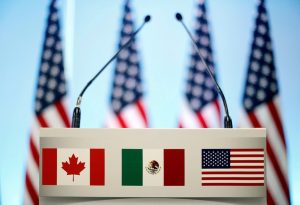 Foreign automakers that have plants in the U.S. do not support President Trump’s administration rules to increase the amount of local content in vehicles that are made in North America, a group that represents the companies that include Toyota, Volkswagen and Hyundai, has told key lawmakers in the U.S.
Foreign automakers that have plants in the U.S. do not support President Trump’s administration rules to increase the amount of local content in vehicles that are made in North America, a group that represents the companies that include Toyota, Volkswagen and Hyundai, has told key lawmakers in the U.S.
Talks between the Minister of Economy of Mexico and the trade representative from the U.S. will resume Tuesday in Washington in an attempt to resolve the remaining issues on the table so Canada, which has not taken part for weeks in the negotiations comes back to the bargaining table.
Automotive experts said that some of the foreign automakers with smaller manufacturing footprints in North America and fewer research and development staff in the U.S. might have problems meeting the stringent requirements for content being proposed.
The American Automotive Policy Council, an organization that represents the Big Three Detroit automakers is encouraged by the direction the discussions are taking, said the head of the organization Matt Blunt.
Blunt said that the group shared the overall goals of the administration of strengthening auto manufacturing in the U.S. and the creation of jobs and given how important NAFTA is for the U.S. industry, the group urges negotiators to complete their talks quickly.
The U.S. and Mexico are nearing the end of reaching a bilateral deal on automobile that would lift requirements for content in North America in regionally made vehicles to a minimum of 70% from its current 62.5%.
That deal is also expected to require that 40% of the value is from high wage locations that pay a minimum of $16 per hour, meaning Canada and the U.S., a source from the Mexico negotiators said.
Officials from USTR have met recently with automakers individually for possible changes, said on source.
Other unresolved issues include a phase-in period for the new rules on autos and whether the demand in the U.S. for a sunset clause which forces renegotiations each five years will be adopted, which makes any long-term decisions on investment almost impossible.
